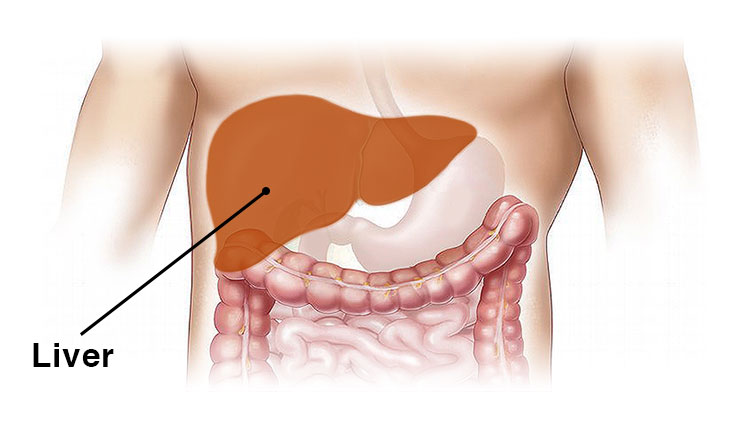Hepatitis Awareness
When we go to the doctors, we hear a lot about vaccinations, especially protecting kids against Hepatitis A and B. But what exactly is Hepatitis and what causes it? ADO’s Medical Director, Dr. Howard Zahalsky, walks us through the symptoms, causes, and treatments for the disease.

What is it?
Hepatitis is simply the inflammation of the liver; either your liver has an infection or you have done something to adversely affect it. Your liver helps with digestion and elimination of toxins from the blood. Basically, without a liver, your body would have a tough time keeping the blood flow clean and toxin-free. Livers are incredibly resilient and even regenerate, if need be. However, if your liver is infected long enough, it can lead to permanent damage or cirrhosis – scarring of healthy liver tissue, which eventually prevents it from functioning properly.
Symptoms
Obviously, you aren’t going to regularly get your liver checked – there’s a relatively low possibility of getting hepatitis, so there’s no need to. But you can pay attention to one obvious warning sign: jaundice. Jaundice is when the whites of your eyes start to turn a yellowish color. If you have lighter skin, your face may also show signs of discoloration by turning an orangey color. However, jaundice itself is not dangerous – providing you are not a newborn, who is 1-2 weeks old. It is however, a sign that you should be paying closer attention to your liver.
Ignoring the issue will not make it go away. Untreated jaundice can lead to cirrhosis as well as preventing proper blood flow around the body. The fluids pool up in the stomach area making an individual look pregnant. This is called ascites and, in order to release the fluid, the stomach has to be drained.
Both jaundice and ascites are complications that arise after hepatitis. But what causes hepatitis to begin with?
Types of Hepatitis and Cures
We’re familiar with the common three: Hepatitis A, B, and C. However, the most common form of hepatitis is not the viral kind. It is actually Alcoholic Hepatitis.
Alcoholic Hepatitis
Everybody knows alcohol is bad for your liver. Alcoholic hepatitis is caused strictly by too much drinking. And what is too much for one person isn’t always too much for everybody else. And just because you’ve built up a high tolerance from years of drinking, doesn’t mean your liver agrees with you.
Chronic, regular ingestion of alcohol will cause the liver to become irritated. Most of the time that damage can be reversed just by stopping drinking. However, if you carry on and ignore the warning signs it can eventually lead to cirrhosis, at which point the damage can become permanent.
Hepatitis A
Hepatitis A is the least serious of the three. It is common in countries with lack of sanitation and fecal contamination in the water. If you do get it, it will go away after a week or two, and does no permanent damage. While it is extremely painful, all you need to do is stay hydrated and well fed. If you get it once, you aren’t likely to get it again.
The good thing is that all children born in the United States are given the vaccine for Hepatitis A and usually complete the series of shots by the age of 5. This became a law around 25 years ago, so if you are older than 25, it is best to get vaccinated for Hepatitis A before traveling to countries that might have sanitation and contamination issues.
Hepatitis B
Hepatitis B is unlike Hepatitis A because the symptoms do not show right away, and it develops slowly. This form of Hepatitis is transmitted through dirty needles and IV drug abuse, but it can also be sexually transmitted. It is often discovered inadvertently through routine blood work, but it is difficult to treat because, unlike Hepatitis A, Hepatitis B is not 100% curable. Nearly 25% of patients get permanent liver damage or cirrhosis. Treatments only work in 50% of patients, and most avoid it because the process can be a lot more painful than the disease itself. And there’s a strong chance it won’t work. Just like Hepatitis A, all children born in the United States are given the vaccination for Hepatitis B.
Hepatitis C
Hepatitis C is the more aggressive of the three. It is spread through blood transfusions and IV drug abuse, and can also be sexually transmitted. It is even more difficult to treat and 50% of patients get cirrhosis. Interferon can be used to treat the disease, but Hepatitis C doesn’t seem to respond to it very well.
Hepatitis C does not have a vaccine, but it has a cure that has worked for 95% of cases – one pill everyday for 12 weeks. There are even three different types of these pills, the most well-known being Harvoni. What’s the catch? The price of a 12-week course for the pills comes out to nearly $100,000, making it the most expensive pill on the market. Needless to say, insurance companies are not always willing to pay for the treatment, especially in patients that have no risk of developing cirrhosis. But there is a way around it – many patients travel abroad for the purpose of purchasing the medicine at a much (MUCH) lower cost!
How Can Activ Doctors Online Help You?
Personal Health Records
You get vaccinated at a pretty young age and it’s hard to keep track of of all your records. ADO will help you track your vaccination records if you relocate or decide to switch doctors. You have the ability to be in control of your records and in charge of maintaining them. We also track your blood work and liver tests and alert you if there is any cause for concern
Second Medical Opinion
With this option, you have the ability to get in contact with liver specialists around the country or the world. You can request a second medical opinion, and we will put you in contact with the right doctor so you can discuss your current treatment plan or other options that haven’t been presented to you.
e-Consultation
This option saves you from making constant trips to the doctor’s office. You can request online meetings with your doctor to ask any questions you may have, therefore saving you time.
Watch Webinar

